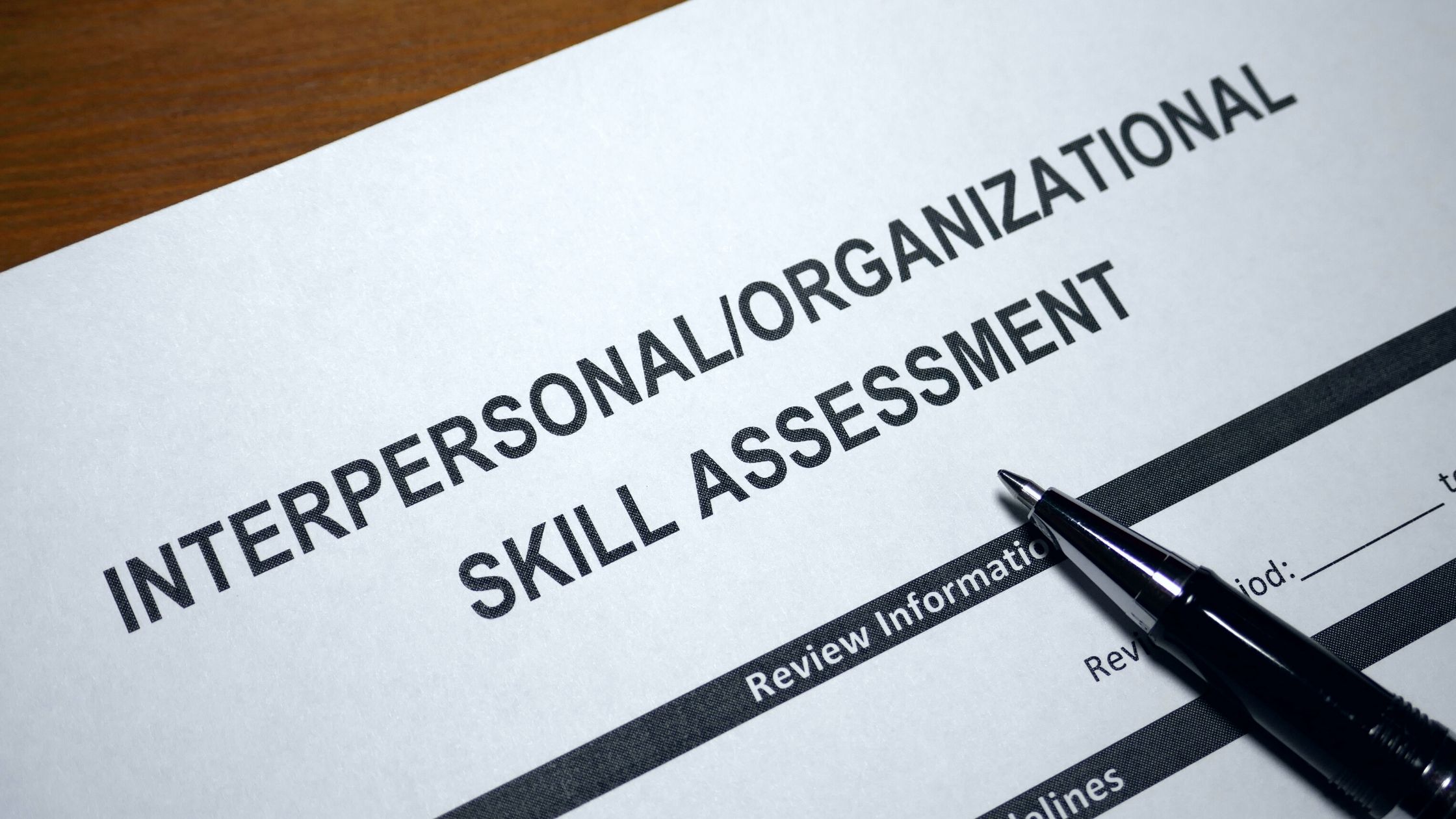This article is the 3rd in a 5-Part Series on Emotional Intelligence for Leaders. We cover self-perception, self-expression, interpersonal relationships, decision-making, and stress management.
Our culture tends to portray emotions as weaknesses, while steely nerves and a dominating presence suggest strength. Make no mistake: it’s important to remain calm and resilient. However, emotions are vital assets when leveraged in leadership.
We all have emotions. They influence our goals, decisions, and passions. They ultimately influence “how we show up” in our interactions with others. Leaders must gain clarity on all those attributes. That’s why emotional intelligence is a crucial leadership trait. When you perceive and understand your emotions, you can regulate your mood and empathy to form stronger relationships. That’s the type of strength a leader needs. Apathy and aggression don’t inspire nearly as much as empathy and compassion!
Emotional intelligence has a powerful feedback loop with interpersonal skills. When you honor your emotions, you improve your interpersonal skills and vice versa.
Here’s how developing your interpersonal skills can grow your emotional intelligence — and therefore, your leadership capability.
What are Interpersonal Skills?

According to Multi-Health Systems (MHS), leaders in the field of clinical assessments, when we look deeper at interpersonal skills, we see that there are three distinct areas that, when put together, define interpersonal skills. A leader who has excellent interpersonal skills is able to succeed in the following areas:
Interpersonal Relationships
Interpersonal relationships refer to the skill of developing and maintaining mutually satisfying relationships that are characterized by trust and compassion. A leader who scores highly on interpersonal relationship skills:
- Knows their team’s hidden and visible strengths and weaknesses
- Strives to understand each team member individually
- Consistently reaches out beyond their team to build a network of support that can buffer them from the negative effects of stress.
Empathy
Empathy is recognizing, understanding, and appreciating how other people feel. Empathy involves articulating your understanding of another’s perspective and behaving in a way that respects others’ feelings. A leader who has a large amount of empathy:
- Is “tuned in” to how others are feeling
- Cares about the thoughts and feelings of their team as much as they do their own
- Is an approachable leader whose team feels safe sharing thoughts and ideas
Social Responsibility
Social responsibility is willingly contributing to society, one’s social groups, and generally to the welfare of others. Social responsibility involves acting responsibly, having social consciousness, and showing concern for the greater community. A leader who is socially responsible is one who:
- Consistently demonstrates their social conscience and are compelled to coach those who they lead
- Is seen as a “Good Samaritan” who helps others without expecting anything in return
- Gains fulfillment from a variety of sources, including activities outside of work
Why Are Interpersonal Skills Important in Leadership?

The most effective leaders are rarely dominating or aggressive. Instead, they motivate others to take meaningful action by setting inspirational examples. Leadership is the art of creating trust.
Interpersonal skills help leaders remain unwaveringly authentic and empathetic, allowing others to trust them.
Put another way, bosses demand that others do what they want, but leaders inspire others to want it themselves. As John Maxwell said, “Leadership is not about titles, positions or flowcharts. It is about one life influencing another.”
Excellent interpersonal skills go hand-in-hand with authenticity and empathy:
- Authenticity helps you take ownership of your responsibilities and mistakes, so you can earn your team’s trust.
- Empathy is the foundation for active listening and compassionate communication.
Once you’ve laid that groundwork, you’re ready to form stronger relationships with your team. You become more perceptive of others’ interests and concerns; for example, you can better read between the lines. Therefore, you can navigate even difficult conversations with grace and respect. If you can detect others’ energy while remaining resilient to stress, you can approach conversations honestly and clearly.
What are the Top Interpersonal Skills?
In a leadership context, we typically focus on these critical skills:
Communication: the ability to express ideas, assign tasks, and request information with clarity and respect
Active listening: the practice of quieting inner thoughts in order to fully process and understand another person’s words
Influence: the ability to motivate and inspire others to action, even without directly asking or telling them to do so
Empathy: the perception and honest understanding of another person’s feelings
Position-taking: the ability to consider a situation from someone else’s POV
Conflict management: not to be confused with conflict resolution or mediation, this is the ability to defuse stressful situations and help those in conflict to modulate their emotions
Interpersonal Skills and Emotional Intelligence

Even the smartest person in the world would be a poor leader if they can’t relate to others. It’s not enough to know the answers. One must be able to communicate effectively and in a way that honors other people’s needs and wants.
Emotional intelligence is the ability to identify and regulate one’s emotions. When we understand what we’re feeling, we can put it to good use — or set it aside to process it. Thus, high EQ is crucial for leaders who need to motivate others, potentially in stressful situations. That’s difficult if one lets negative emotions take over.
For example, many people misinterpret fear or worry as anger. They may not recognize when they’re feeling mad or envious. As a result, they project insecurities onto others, avoid stressful topics, or ignore opportunities for growth.
A low EQ often accompanies poor interpersonal skills and vice versa. If someone can’t identify their emotions, they can’t regulate them. Therefore, their social interactions are easily swayed by their mood. Instead of listening to other people’s interests and concerns, they project their own attitudes. In the end, both parties feel unheard or even disrespected.
By the same token, high EQ helps one develop interpersonal skills. Plus, building those skills supports one’s EQ. Leaders need to communicate clearly, constructively, and with compassion. That takes strong interpersonal skills backed by emotional intelligence.
Build Interpersonal Skills and Become an Influential, Respected Leader
After considering how EQ, interpersonal relationships, empathy, and social responsibility form great leaders, we can see that interpersonal skills are one of the keys to inspiring others. But authenticity and empathy are only the start. How does one leverage those attributes to grow their leadership capability?
Characteristics of a leader with effective interpersonal skills
- Clearly communicates the mission, values, key messages, and goals to their team
- Shares ideas and knowledge in a way that adds value and aligns with others’ needs
- Becomes a trusted mentor and go-to problem-solver
- Accepts both good and bad news or feedback with respect and grace
- Owns up to mistakes and encourages others to do so as well
- Delegates and motivates, rather than demanding or deflecting
- Helps their team members to take ownership with full clarity
When we conduct our conversations with respect and self-awareness, we’re better able to reduce miscommunication. Active listening and position-taking help us resolve conflicts. Most importantly, interpersonal skills support a leader’s confidence and clarity. Thus, they become resilient to stress, helping them gain others’ trust and serve as a beacon of growth.
Summing It Up

Throughout this series, we’ve discussed how self-perception, self-expression, and interpersonal skills support one’s leadership capacity. Notice that the common thread is emotional intelligence. When we recognize our emotions and perceive them in others, we can better communicate and relate to others with empathy and authenticity.
It can take time to unlearn society’s ideas about leadership as apathetic or dominating. Many of us have been taught to ignore our emotions and speak rather than listen.
But anyone can improve their emotional intelligence. And if they’d like to grow as a leader, they absolutely should.
Begin by taking the EQ-i Leadership Report, an assessment tool I offer in my coaching. Then book a call to set up an EQ-i Assessment and continue building the groundwork to become an influential and respected leader.
Did you enjoy this article? Make sure you read the whole series!
Emotional Intelligence For Leaders: Part 1 – Self-Perception
Emotional Intelligence for Leaders: Part 2 – Self Expression
Emotional Intelligence For Leaders: Part 4 – Decision-Making


